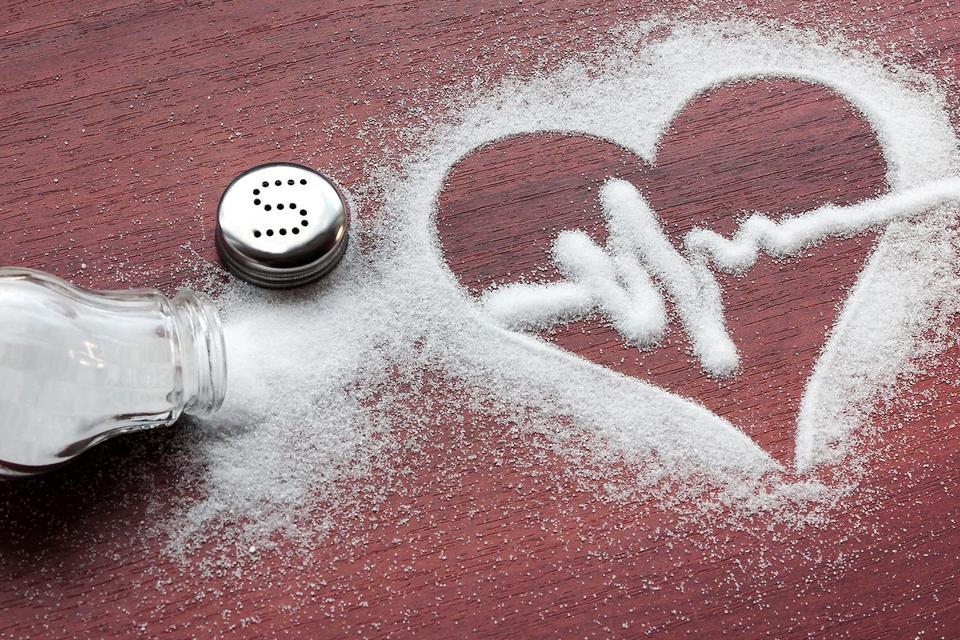Salt Education Assisting Patients with High Blood Pressure

Description
SaltED is a web-based behaviour change platform and research project, developed to help people reduce the salt in their diet and prevent and manage high blood pressure.
Partners
Professor David Johnson, Director of Metro South and Ipswich Nephrology and Transplant Services, Princess Alexandra Hospital, and Professor of Medicine at University of Queensland, and Professor Jacqui Webster, Director of the World Health Organisation on Population Salt Reduction at the George Institute for Global Health, a leading independent global medical research institute with major centres in Australia, China, India and the UK.
Impact
SaltED is an innovative, low-cost, highly accessible and personalised web-based coaching program to help Australian adults with high blood pressure reduce their salt intake and prevent and manage hypertension.
Even a small reduction in salt intake can reduce the risk of cardiovascular events and save lives.
Researcher
Dr Saman Khalesi
“Our body needs sodium to function properly, but most of us eat an excessive amount of it as salt (which contains 40 per cent sodium),” says Dr Khalesi.
“We tend to consume more than twice the five grams of salt per day recommended by the World Health Organisation and Heart Foundation to maintain a healthy heart”.
“This excessive salt intake leads to water retention and pressures the blood vessels and the heart and increases calcium loss. In fact, even a slight reduction in daily salt intake may reduce the risk of high blood pressure, cardiovascular events and bone loss.”
Dr Khalesi says the majority of salt in food was ‘hidden’.
“More than 70 per cent of the salt we eat is hidden in commercial and processed food products,” Dr Khalesi explains.
“They may not even taste salty, as the saltiness can be masked by other tastes and spices, making it difficult for us to understand how much salt we are consuming.
“Salt intake reduction is the first line of treatment for high blood pressure. But it is difficult to choose lower salt foods.
“Complex commercial food labels, availability of healthier food options, individual preferences and likes and dislikes – all need to be considered when planning to reduce salt intake.”
Along with fellow researchers, Dr Khalesi has developed a web-based salt education program called SaltED which interacts with consumers and provides personalised feedback on salt reduction.
“The program was developed as a result of years of research in collaboration with consumers, hypertensive adults, professionals and experts in the field, to help Australian adults with high blood pressure reduce their salt intake by providing personalised feedback on their current salt intake habits,” he says.
Adults with medically diagnosed high blood pressure or hypertension, or those with consistent systolic blood pressure ≥130 mmHg and/or diastolic blood pressure ≥85 mmHg have been encouraged to participate in the SaltED program.
“SaltED is an online platform that provides personalised content to educate individuals with high blood pressure about their salt intake habits and help them to choose lower salt foods, like a 24/7 salt coach,” says Dr Khalesi.
“Given that the majority of Australians have the internet, they can easily access SaltED from anywhere at any time.
“For those living in remote and rural areas, older adults, and those that are disadvantaged, access to a regular face-to-face consultation with health professionals can be limited. Personalised online interventions can mimic interaction with health professionals and offer an engaging and effective program that reaches large populations at a low cost.”
Now in its final ‘intervention’ phase, Dr Khalesi says that SaltED already has more than 500 users around Australia.
“It is a five-week intervention including personalised modules that focuses on specific salt intake behaviour and food groups each week.
“While we are still collecting information from participants, the feedback suggests that they have found it helpful and engaging.
“This is encouraging for us. If the results suggest SaltED helps with improving salt behaviour in adults with high blood pressure, then it can play a major role in hypertension management in Australia, especially for those who can’t easily access traditional face-to-face interventions.”
Connect with CQUniversity
At CQUniversity we know the value of our connections locally and around the world. Our partnerships help us create opportunities, deliver solutions and change lives. From time to time, we share our Connections Count update where we share our highlights, including research impact stories like the ones above. Sign up to become one of our valued connections.
